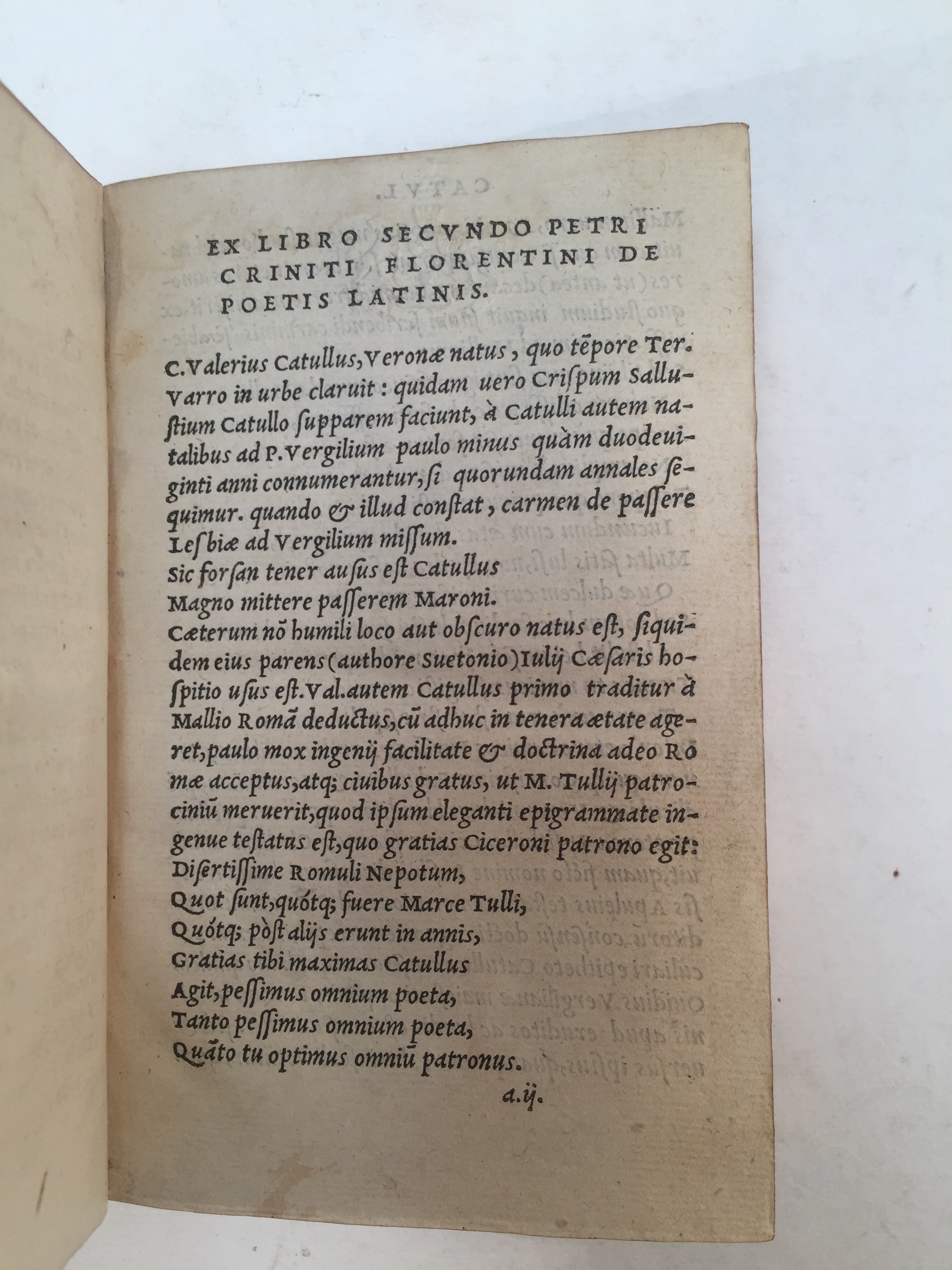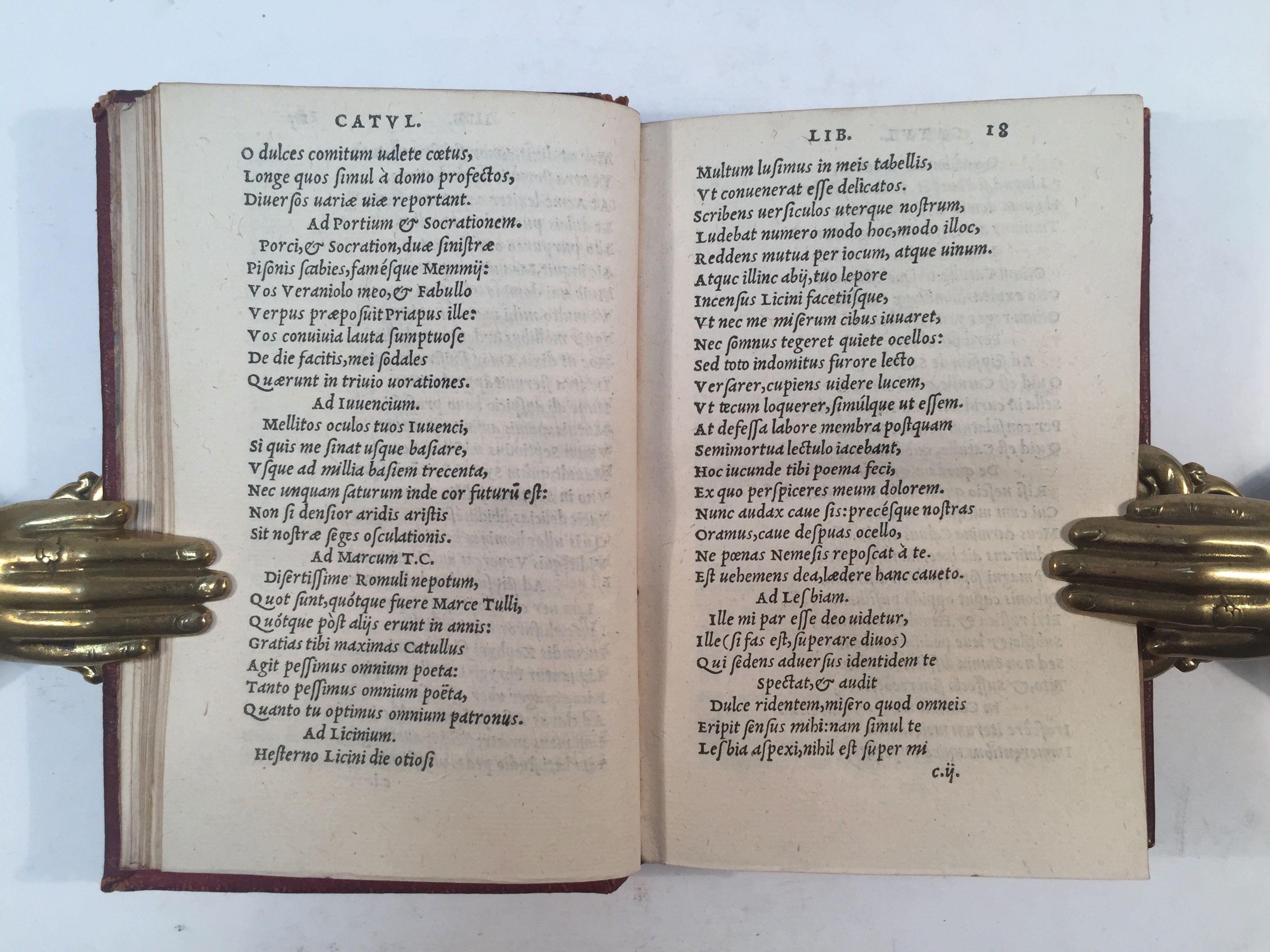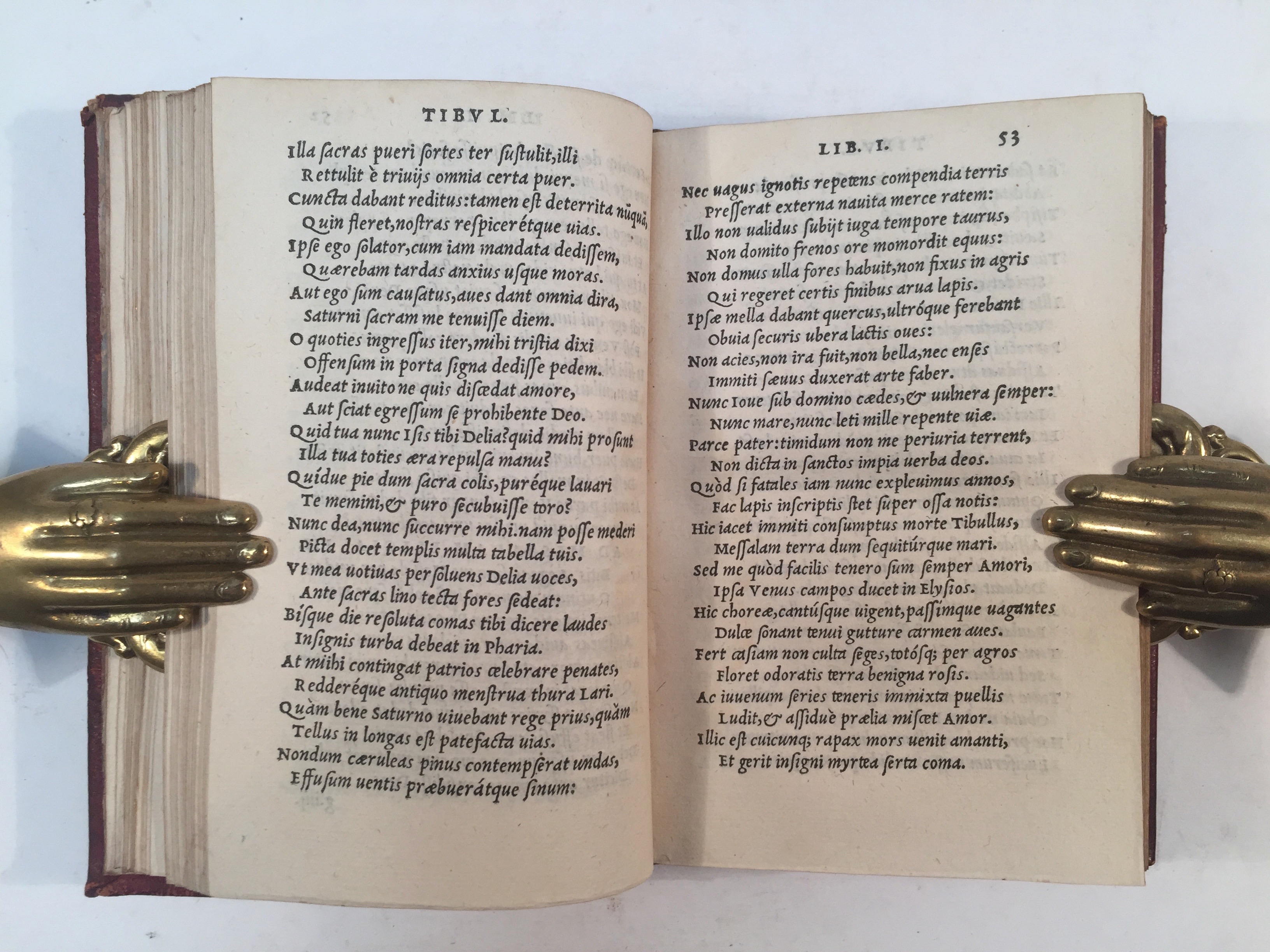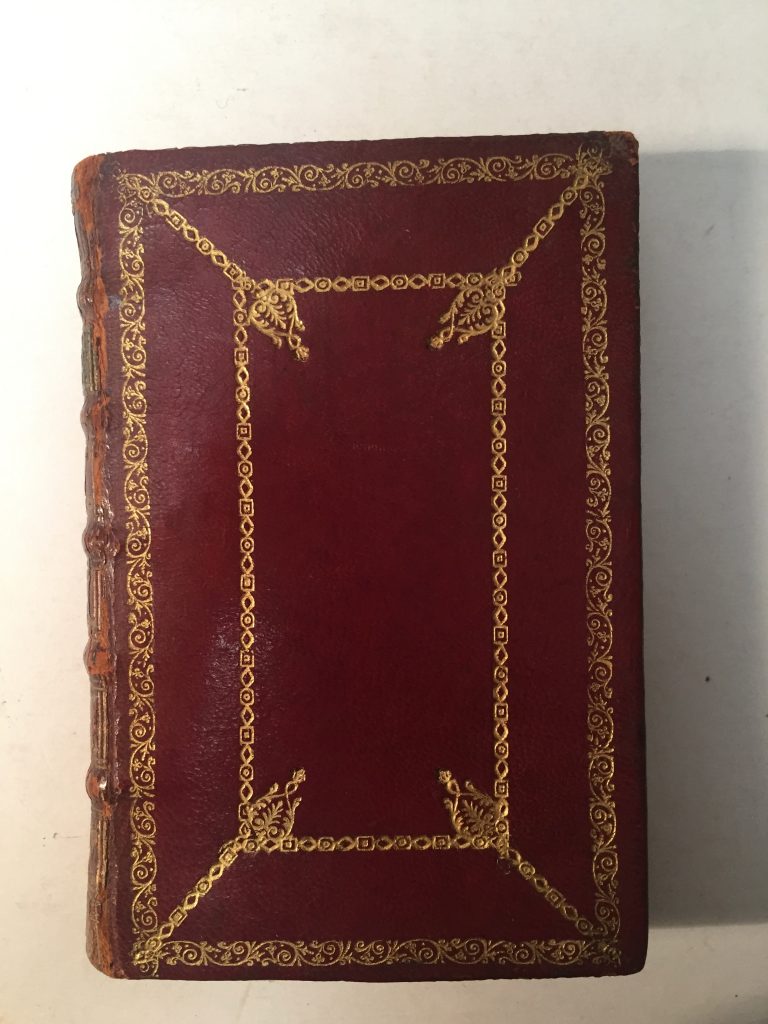CATULLUS, TIBULLUS, PROPERTIUS
[Opera]
[Paris], [Simon de Colines], [1534]£2,750.00
8vo. ff. 80, 89-168 (misnumbered). Italic letter, black-on-white woodcut initials. T-p from another contemporary edition, repaired at foreedge, very slight age yellowing, faint dampstain to upper inner corner of a couple of quires, one or two finger-marks. A very good copy in 17th C French crimson morocco gilt, simple scrolled gilt-rolled border and corner fleurons on a central blind-ruled panel with an unusual square and diamond patterned-roll, to form a double frame mitred design, spine gilt in compartments, black morocco lettering piece, a.e.g. 19th C armorial bookplate of the Earl of Macclesfield on front pastedown, Shirburn castle blindstamp to first few ll, 2 ms classmarks to eps at rear.
Second, improved Colines edition, derived from the Aldine by Aldus the elder and Jer. Avancio. Each beginning with biographical extracts from the Florentine Petro Crinito’s guide to the Latin poets, the work is divided into three sections, respectively comprising Catullus, Tibullus and Propertius. The first comprises the complete works of Catullus, (c.84-54 BC), 117 poems ranging in scope from the famous two-lined ‘odi et amo’ to the vigorous obscenities of poem 16, when Catullus wrathfully proclaims: “Pedicabo ego vos et irrumabo, Aureli pathice et cinaede Furi”. The second presents four books which are attributed to Tibullus (c. 54-19 BC), (probably only the first two are genuine), including elegies to his first love Delia, his patron Messala, the god Priapus, and to his last love, the courtesan ‘Nemesis’. Book three is attributable by internal evidence to the otherwise obscure Lygdamus, while book 4, thought to have been completed only in the 16th C, begins with a discourse on Messala’s achievements, followed by poems telling of the love of his sister Sulpicia and Cerinthus. The section concludes with a passage about the death of Tibullus, drawn from Ovid.
Section three presents the four books of Propertius (c.50-14BC); the first is a passionate love elegy to ‘Cynthia’, a unique work that documents the affair as it progresses, and which gained Propertius immediate fame as an innovative poet. Further poems to Cynthia with more general musings on love follow, while the third book – marking the end of the affair – diversifies into avarice, death and new friends. Book four explains the origin of various Roman rites and landmarks, and discusses the great seabattle of Actium.
BM STC Fr. 96. Adams C 1142. IA 134.459. Ren. Colines p.226. Schreiber 114.In stock






